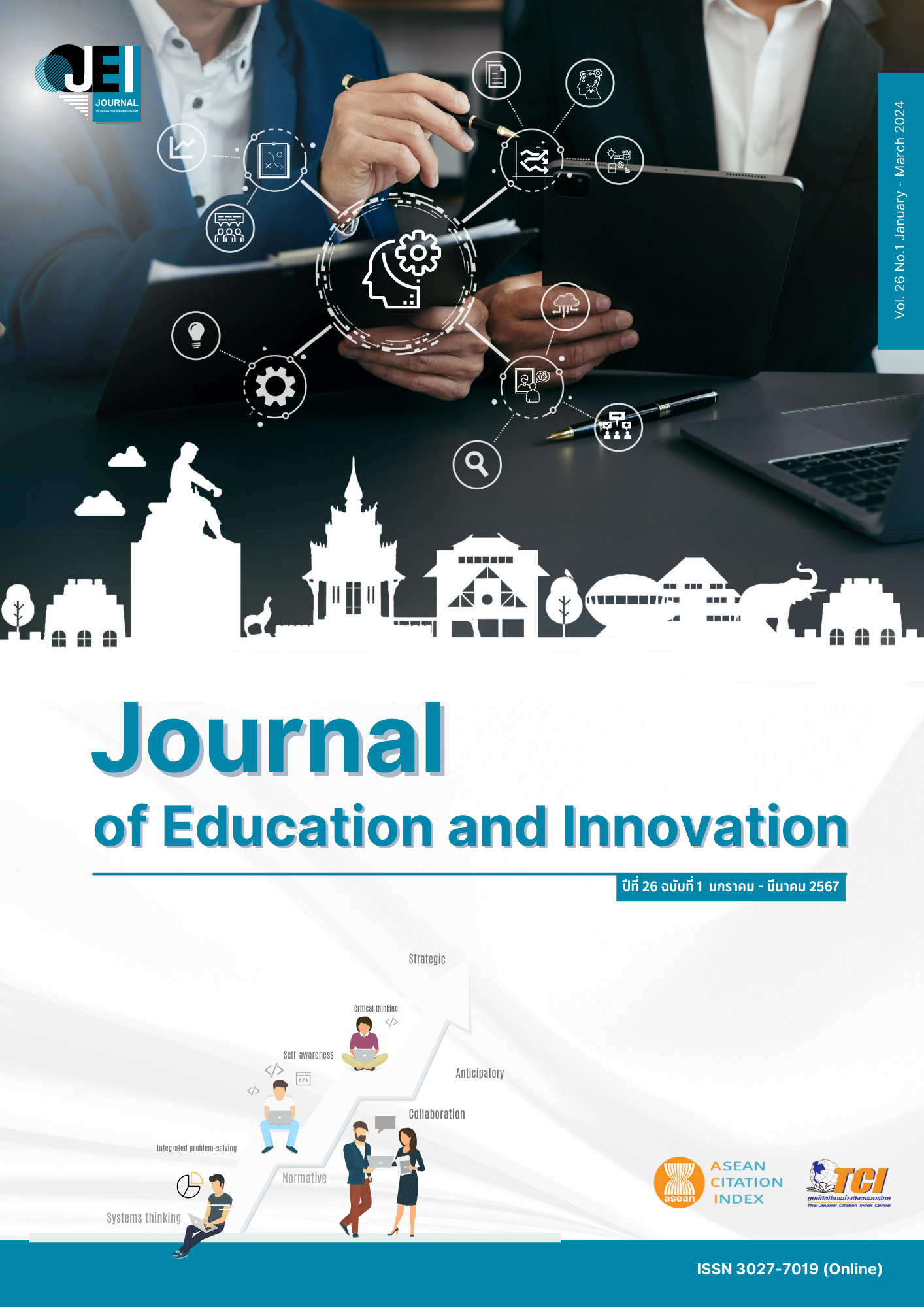INTEGRATION MANAGEMENT OF LEARNING AND TEACHING USING PROJECT-BASED SIPEDA MODEL FOR HIGH FREQUENCY ANTENNAS TECHNOLOGY EDUCATION
Main Article Content
Abstract
This research paper was an integrated instructional management using project-based SIPEDA model for high frequency antenna technology education. The research process consisted of the development of project-based instructional model called the SIPEDA model. There are six steps in teaching process, consisting of 1) Searching), 2) Information, 3) Preparation, 4) Experiment, 5) Discussion and 6) Assessment step, and the implementation for a sample of undergraduate students enrolled in the Bachelor of Industrial Education Program in Electronic and Telecommunication Engineering, Rajamangala University of Technology, Sakon Nakhon Campus, who were selected specifically according to the actual classroom, amounting to 42 people. The research tools are as follows; the teaching plan, SIPEDA based integrated learning activities, instructional package on high frequency antenna technology, and quality assessment form. The research results showed that the developed project-based SIPEDA integrated instructional model was found to have a high level of appropriateness ( = 4.31, SD = 0.68). The SIPEDA integrated instructional model was found to have an efficiency equal to 1.067 of Meguigans’ formula. The learning achievement of the experiment group was statistical significantly higher than the control group at the .05 level, and the students were extremely satisfied (
= 4.42, SD = 0.54). The developed SIPEDA integrated instructional model can enable students to have diverse skills, such as searching, hands-on, problem solving, and presenting knowledge. In addition, research results can support learners to achieve higher academic achievement and lifelong learning skills.
Article Details

This work is licensed under a Creative Commons Attribution-NonCommercial-NoDerivatives 4.0 International License.
The owner of the article does not copy or violate any of its copyright. If any copyright infringement occurs or prosecution, in any case, the Editorial Board is not involved in all the rights to the owner of the article to be performed.
References
Chaiyawong, K., & Akatimakool. S., (2018). Management of instructional activity on antenna technology using SIPEDA learning model for undergraduate students, 10th National Conference on Technical Education (pp. 347-353). Bangkok.
Chaiyawong, K., & Akatimakool. S., (2018). Development of high frequency swr instrument set for testing telecommunication system. 10th ECTI-CARD 2018 (pp. 490-493). Phitsanulok, Thailand.
Chumchuen N., (2021). Management of learning activities to promote systematic thinking skills for student teachers training in technology education, 6th International STEM Education Conference (iSTEM-Ed), November 10-12, Pattaya, Thailand.
David, M. P. (1998). Microwave engineering. New York: John Wiley & Son.
Klinbumrung K., Akatimagool S., (2019). “Development of Instructional Activity Package based on STEM Education Process for High-frequency Transmission Engineering Education”, Technical Education Journal King Mongkut’s University of Technology North Bangkok, vol. 10, no. 2, pp. 92-100. (in Thai)
Kittiwittayapong S., Phaebua K., Sittithai P., & Lertwiriyaprapa T., (2016). Low-cost planar near-field to far-field measurement system for a small antenna, The 13th International Conference on Electrical Engineering/Electronics, Computer, Telecommunications and Information Technology (ECTI-CON) (pp. 1-3).
Klinbumrung, K., Jeenawong, R., & Akatimagool, S. (2017). The STEM learning process using REPEA model for transmission line engineering course. The 5th International Conference on Technical Education (ICTeched 5), November 23, 2017, Bangkok, Thailand.
Klinbumrung K., & Surpare K., (2021). Engineering teacher training using miap based coaching and mentoring techniques in promoting teacher competencies, 6th International STEM Education Conference (iSTEM-Ed), November 10-12, Pattaya, Thailand.
Maneewan, D., Nuangpirom, P., & Ruangsiri, K. (2017). The Development of GUI-MATLAB based Simulation Program for Principle of Communication System Course. The 2nd International STEM Education Conference (iSTEM-Ed), July 12-14, Chiang Mai, Thailand.
Tangthong N., & Aktimagool S. (2021). Management of laboratory-based learning activity on electronic flight instrument system, 6th International STEM Education Conference (iSTEM-Ed), November 10-12, Pattaya, Thailand.
Thitsana, K. (2016). Science of teaching knowledge for efficient learning management. Bangkok: Chulalongkorn University Press.
Vatcharaporn P., & Maream N. (2021). Project-based learning management according to the constructionism theory. Journal of Research and Curriculum Development, 11(2), 8-23.
Zhao, Y., & Wang, L. (2022). Correction: A case study of student development across project-based learning units in middle school chemistry. Disciplinary and Interdisciplinary Science Education Research, 4, 18.


